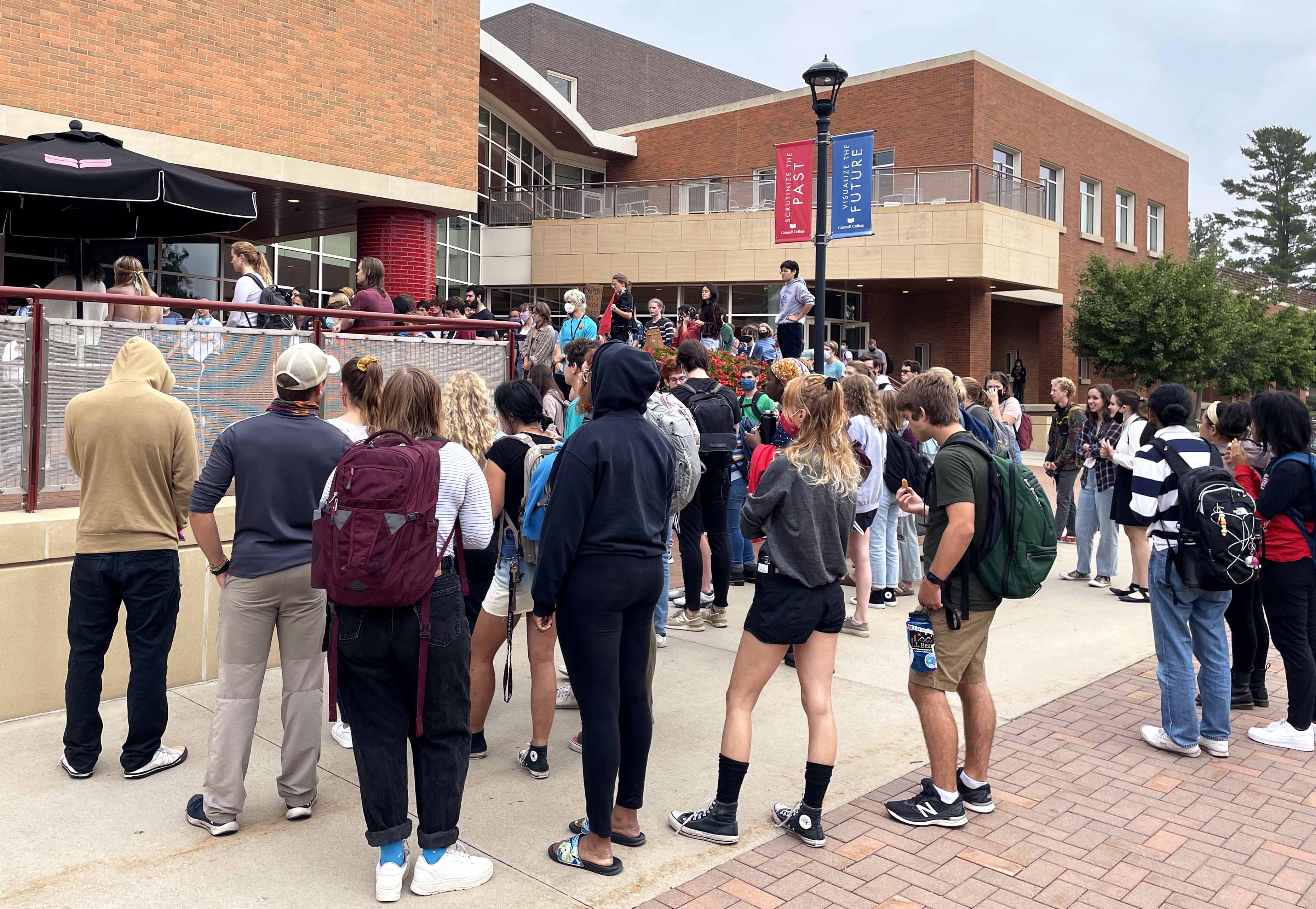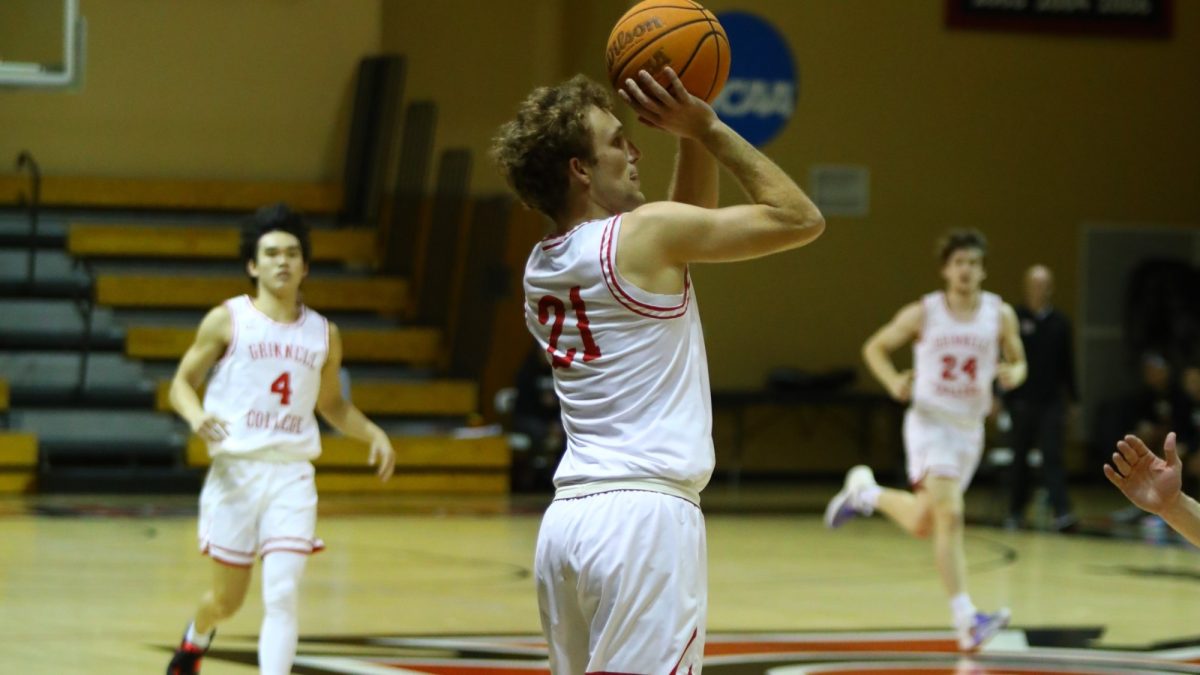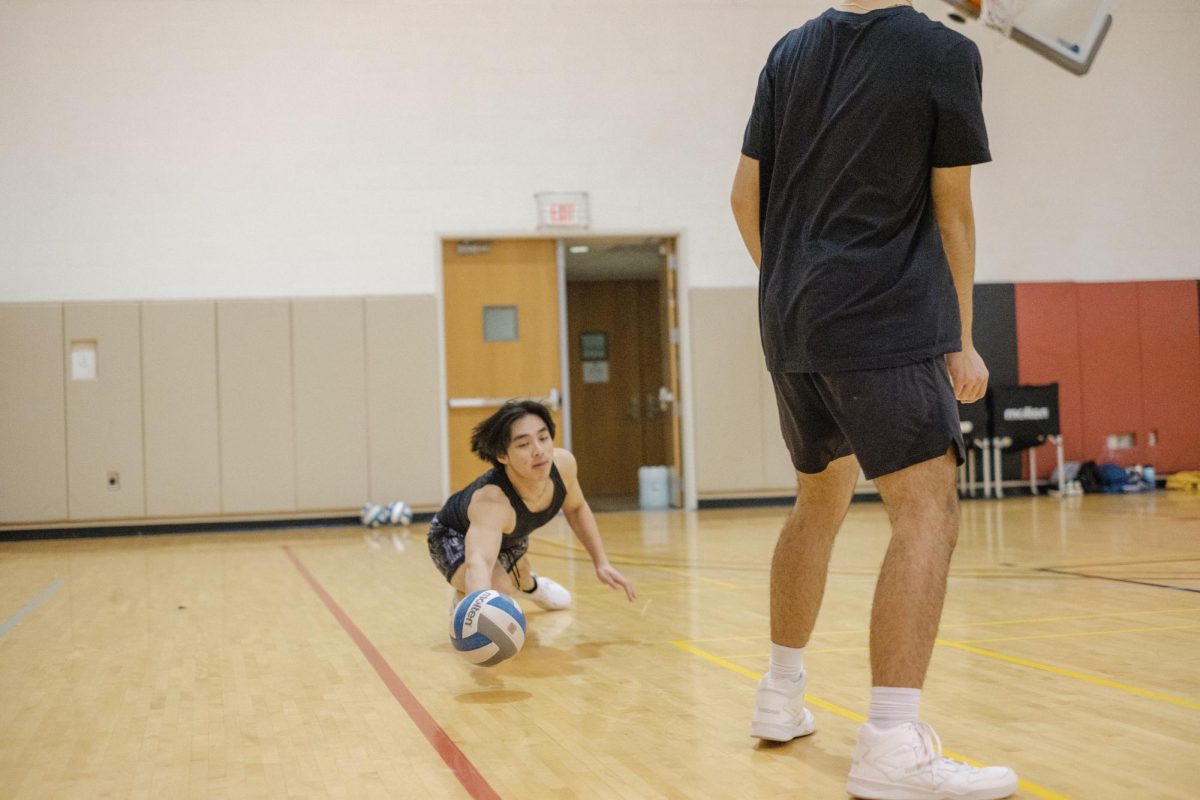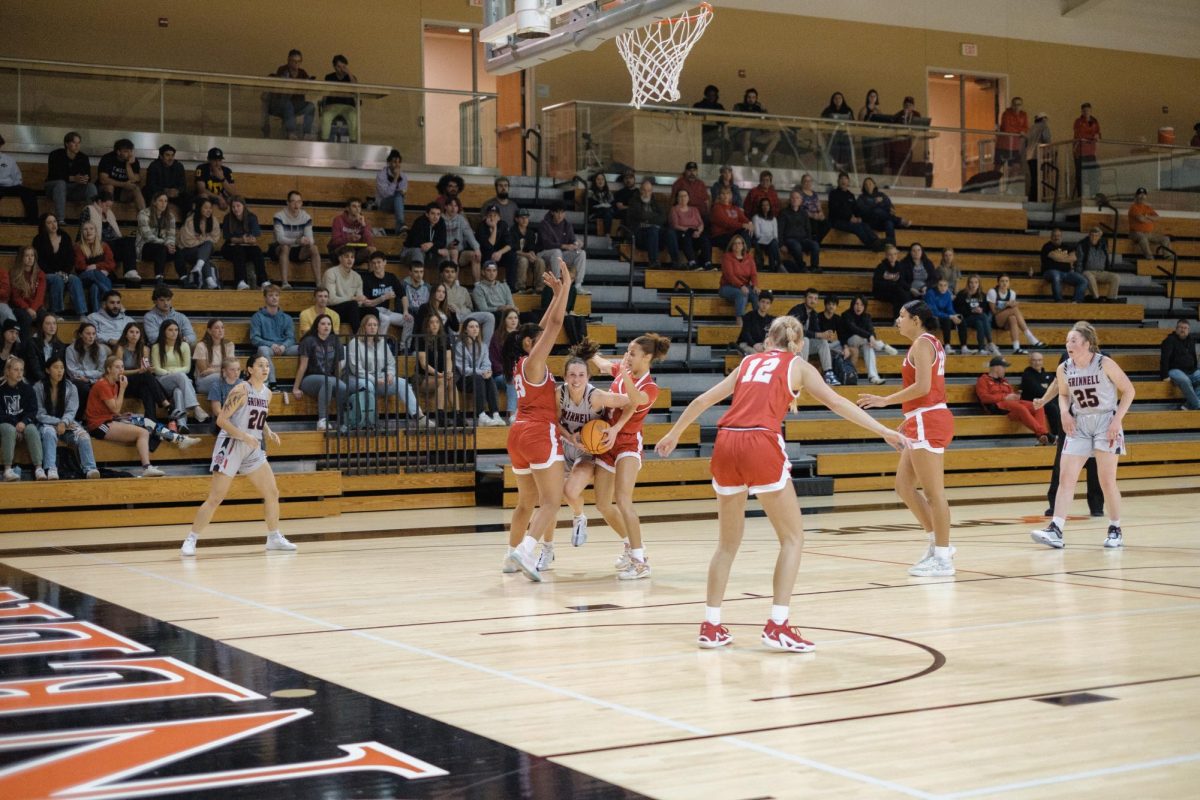![]() By Ellianna Cierpiot
By Ellianna Cierpiot
cierpiot@grinnell.edu
At 11:15 a.m. on Oct. 7, mailroom workers organized with a list of demands to give to their supervisors, Kim Hegg and Payton Ronfeldt, after what they said has been years of mistreatment and disrespect in their workplace. Organizing student workers delivered the sheet of paper containing their nine demands to supervisors, anda crowd of students gathered outside the JRC holding signs with slogans in support of their movement.
One former mailroom employee, Claire Liddle `23, remembers her negative experiences in the mailroom, especially a time when she fell very ill and was unable to miss work.
I was sorting packages, and I was scanning a package, and my vision completely went white,” Liddle said. “It just like, cracked down the middle, and I was super dizzy and I was just standing there holding this package and it occurred to me, I can’t leave. I can’t leave because then I might be fired.”
One concern for mailroom workers who organized is an “at-will” employment clause in their contract, which means that mailroom supervisors Kim Hegg and Payton Ronfeldt could fire a student worker at any time, for almost any reason, a practice that the workers call to end in their demands. The organizing worker’s demands also call for the addition of paid sick leave.
For Liddle, on-campus employment was crucial when she worked in the mailroom, because she wouldn’t have been able to afford another job– and the possibility of being fired at any point was a real fear.
“There was always a feeling that we as workers were replaceable, because they made it very clear … that they could fire us at any time for any reason,” Liddle said.
This became pressing for Liddle when she had to shorten her hours due to health complications, including depression, which she said was worsened by working in the mailroom. According to Liddle, when she attempted to request shortened hours, she was asked to give specific medical details to her supervisors, which she said she did not feel comfortable doing.
“I think that if I had said [that] this job is making my depression worse, I would have been fired,” Liddle said.
Anna Engelhardt `21 was fired after being involved with the first effort to organize the mailroom in May 2021. Following this, she said, she had planned to take a trip with a friend. However, she said, the supervisors informed her that they would not be able to hold her job for her while she quarantined upon arrival back at Grinnell after her trip.
“I was actually fired in the middle of my shift by email,” Engelhardt said.
The organizing workers also brought up concerns about COVID-19 protocols in the mailroom. Engelhardt worked in the mailroom at the onset of the COVID-19 pandemic, and said that she noticed the supervisors disregarding COVID-19 safety by not wearing masks.
“Me and my friends were being really, really careful,” Engelhardt said. “So the disparity between our own personal attitudes towards [COVID-19] and going into this work environment where we had to interact closely with people who were not being safe, was definitely stressful, and also frustrating.”
During her time in the mailroom, Engelhardt also said she was uncomfortable with the way that supervisors talked to the employees.
“Any time you had a question … something that you wouldn’t necessarily know, because it was out of the ordinary, she would be super condescending … [and] talk down to you like you were a child,” Engelhardt said.
“People would get yelled at for the most mild things,” Liddle said. “If you did anything wrong, you would get reprimanded.”
I was super dizzy and I was just standing there holding this package and it occurred to me, I can’t leave. I can’t leave because then I might be fired. – Claire Liddle `23
Several employees also said they have witnessed conflict between mailroom supervisors and students who were coming to pick up packages.
One of these incidents, said Engelhardt, happened to her friend, who was unable to pick up an important package during the pick up times, due to having to leave for a sports game.
“She couldn’t pick up her package at a later time… so she went a little bit early and asked if an exception could be made because of the extenuating circumstances,” Engelhardt said. “And Payton told her that she needed to have more structure in her life, and forced her to write an email to her … in front of her about this thing, [which] is so ridiculous.”
The UGSDW press release also mentions that the supervisors had made sexual comments about students coming to pick up packages. Current employee Leia Sohn `23 said she had also had an incident.
“The first day I came into work at the mailroom, I was wearing … a normal outfit,” Sohn said. “It was jeans, a flannel, and a tank top. And I walked in and they looked at me and they sent me home and told me I couldn’t wear what I was wearing.”
Sohn says she now feels uncomfortable wearing anything to work except baggy shirts, because she doesn’t want the supervisors commenting on her body. Additionally, Sohn says that since she has a larger chest, she was punished for an outfit that someone with a different body type could have worn without any comment from the supervisors.
“I was frustrated, because it was my first day [and] they hadn’t given us an official dress code,” Sohn said. “So I felt like there was no grounds for them to send me back to my dorm and change. It was just embarrassing.”
The UGSDW press release and workers interviewed also said that mailroom supervisors refused to use the correct pronouns or names of transgender workers.
“I have never once been gendered correctly in the mailroom,” Lu Johnston `24 said, continuing that they do not feel that they, or any trans employees, have their gender identity respected by the supervisors.
According to the UGSDW press release, the mailroom supervisors also have made comments about international students and students of color, expressing disdain or inconvenience about their names.
“We all feel very uncomfortable with the comments they make,” Johnston said.
After the organizing workers presented the demands to Ronfeldt, they came back outside the JRC and were met with cheers from the students gathered in support. Further actions, such as letter writing to the supervisors, are planned to continue this process, according to the UGSDW.
Kim Hegg and Payton Ronfeldt denied request for comment.
This is a developing story.




































































